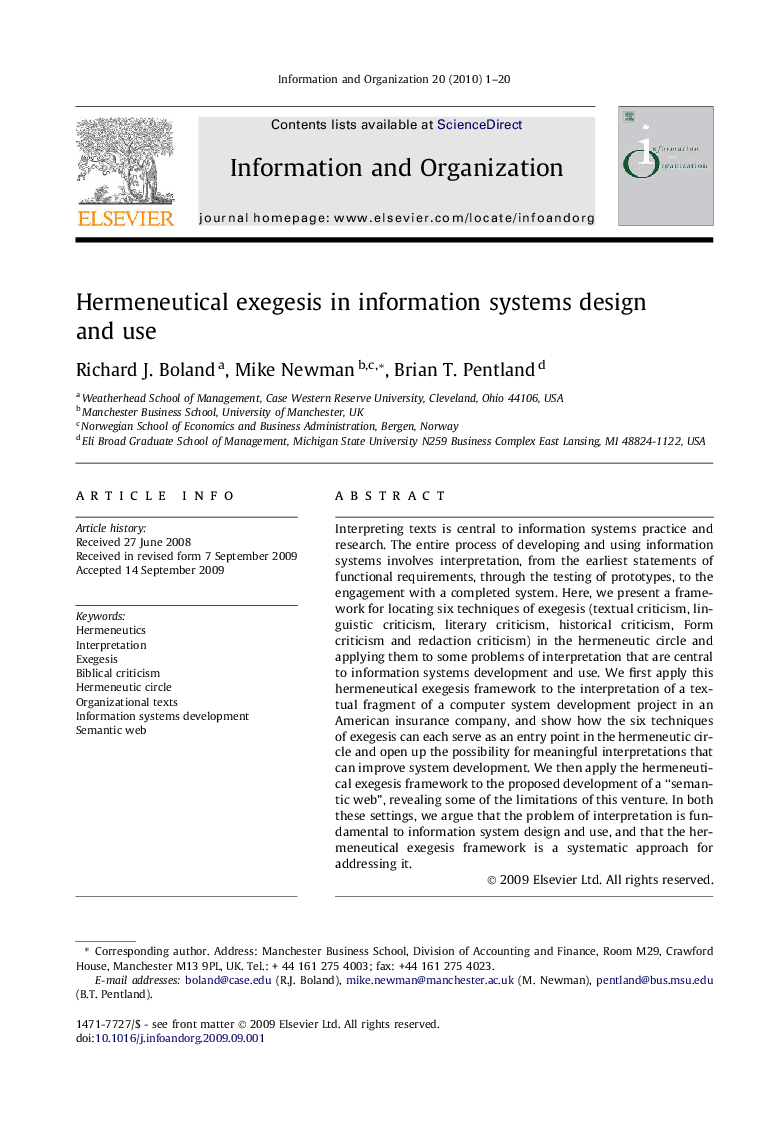| Article ID | Journal | Published Year | Pages | File Type |
|---|---|---|---|---|
| 554614 | Information and Organization | 2010 | 20 Pages |
Interpreting texts is central to information systems practice and research. The entire process of developing and using information systems involves interpretation, from the earliest statements of functional requirements, through the testing of prototypes, to the engagement with a completed system. Here, we present a framework for locating six techniques of exegesis (textual criticism, linguistic criticism, literary criticism, historical criticism, Form criticism and redaction criticism) in the hermeneutic circle and applying them to some problems of interpretation that are central to information systems development and use. We first apply this hermeneutical exegesis framework to the interpretation of a textual fragment of a computer system development project in an American insurance company, and show how the six techniques of exegesis can each serve as an entry point in the hermeneutic circle and open up the possibility for meaningful interpretations that can improve system development. We then apply the hermeneutical exegesis framework to the proposed development of a “semantic web”, revealing some of the limitations of this venture. In both these settings, we argue that the problem of interpretation is fundamental to information system design and use, and that the hermeneutical exegesis framework is a systematic approach for addressing it.
